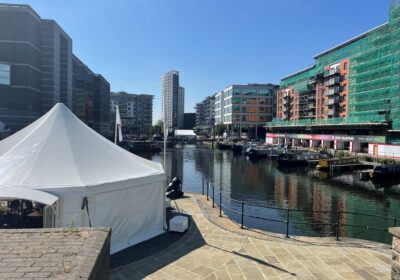“We are on our knees in terms of the housing crisis. I have worked in this sector for 35 years and this is the worst I have ever seen it”. So said Fiona Fletcher-Smith, chair of the G15 group at a City Hall Housing Committee this month.
The discussion was on the back of a paper submitted to the Mayor from London’s housing partnership board. Housing Chiefs bemoaned the lack of resources in the system and pointed to the escalating costs of homelessness. London councils are burning through £60 million a month to keep people in temporary accommodation.
The GLA estimates its needs another £4.4bn annually just in London to meet the Capital’s affordable housing needs. I don’t know how this figure is calculated but if this is assuming the private sector is also picking up some of the burden then think again. The private sector, just like the main HAs, is in a process of staged withdrawal from London house building.
A combination of increased borrowing rates and high inflation has shattered the cross-subsidy model. Unfortunately, this is still not being explicitly acknowledged and if we don’t acknowledge what’s not working then it will be impossible to build consensus.
We need three things to happen now:
First, we need some honesty at all levels. Politicians need to stop making commitments around social housing that they are not willing to pay for and acknowledge the private and third sector cannot carry the nation’s affordable housing requirements without a very significant uptick in public subsidy. There simply isn’t the money to subsidise social housing from the private sector and if politicians think there is then expect new home starts to continue to spiral downwards. The housing crisis is made worse by ignoring reality.
Second, we need rethink how affordable housing planning policy integrates with grant. If there is no grant available for a site, any site, then there is no point setting Borough percentage requirements which are not achievable and decisions should be weighted accordingly. In the last two months, several London Councils have increased their affordable housing requirements in planning policy. This will mean fewer homes, not more affordable housing.
Third, we need to make significantly more public money available to spend on social housing and not rely on the private sector to take the risk alone. Investment isn’t going to come into the sector if it means it has to operate at a loss. It will come in if there is public money that can be used smartly to get things going.
Being pragmatic about housing delivery rather than prescriptive can means things will start moving again. Whilst social housing is important, so is all housing. We should not stop all housing because the need to create more social housing is not addressed properly by the Government.








